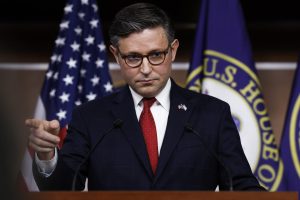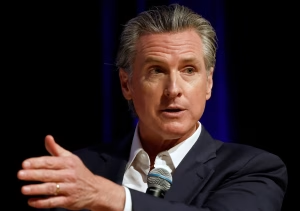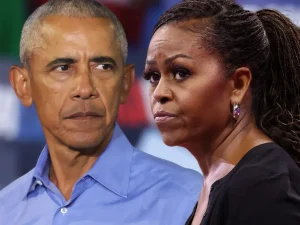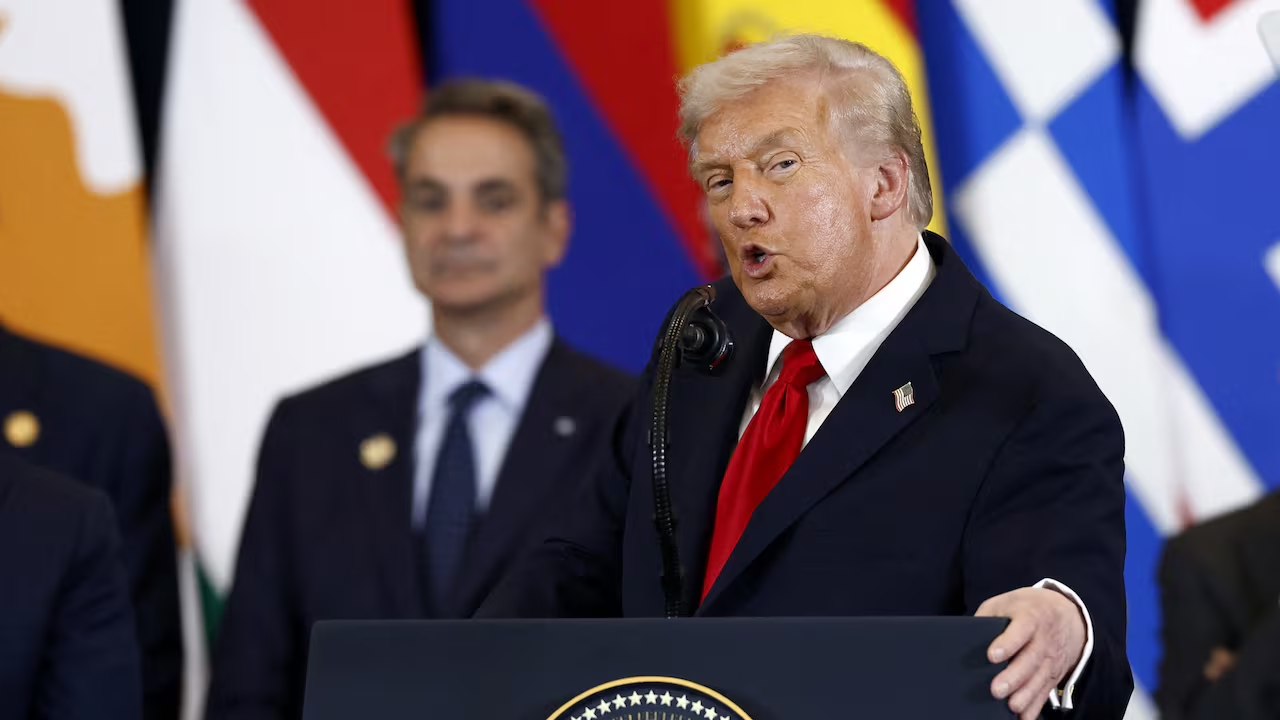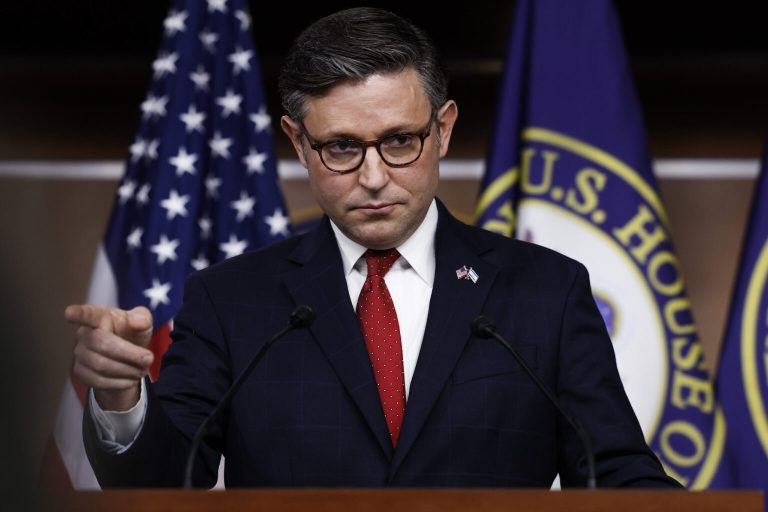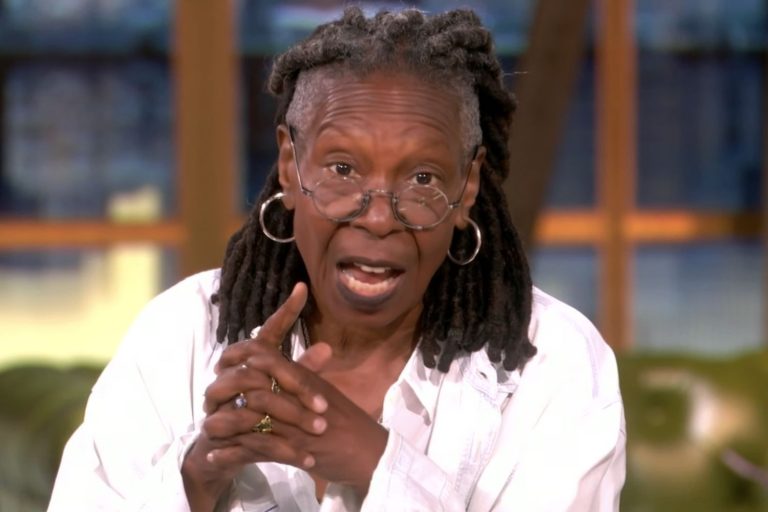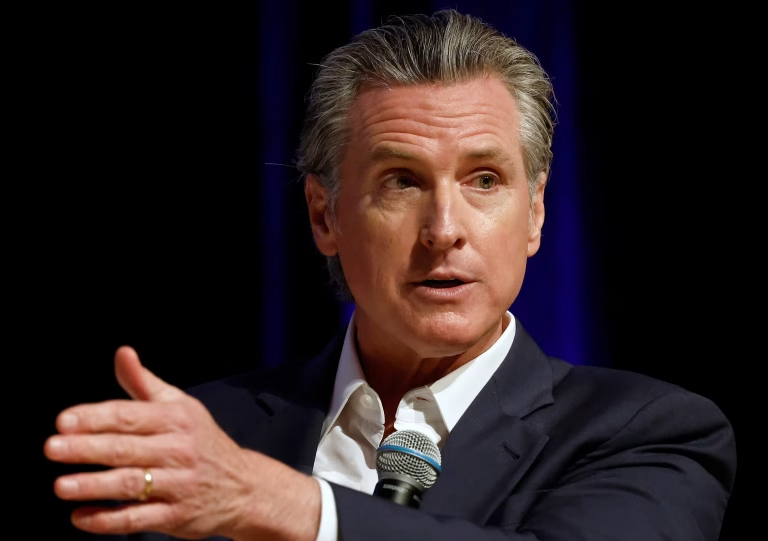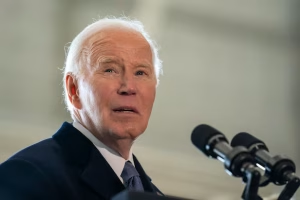U.S. President Donald Trump appeared to take a subtle jab at former Canadian Prime Minister Justin Trudeau during the Gaza ceasefire summit on Wednesday, October 13, in Sharm El-Sheikh, Egypt. The summit brought together world leaders to endorse a historic ceasefire in Gaza, following the release of all 20 remaining Israeli hostages held by Hamas.
The event marked a significant milestone in international diplomacy, with Israeli authorities agreeing to release more than 1,900 prisoners and detainees in exchange for the hostages. World leaders—including representatives from the U.S., Egypt, Qatar, Turkey, and Canada—gathered to witness the formal signing of the peace plan, highlighting global support for ending ongoing violence in the region.
Trump’s Gaza 20-Point Plan
During the summit, Trump posed for photographs in front of a “Peace 2025” banner and individually greeted attending dignitaries. His proposed 20-point plan called for Israel to maintain a limited military presence along its border with Gaza, while an international force—largely comprising troops from Arab and Muslim countries—would manage security within the enclave. Israeli forces, however, emphasized that they would continue to operate defensively in approximately 50% of Gaza under their control, in accordance with the ceasefire agreement.
Trump highlighted the need for continued international collaboration to stabilize Gaza, underscoring the role of regional partners in maintaining peace and security. While the agreement was largely hailed as a diplomatic success, the summit also offered a platform for Trump to showcase his personal style of diplomacy, which often blends formal negotiation with unfiltered commentary.
The Hot Mic Incident
Amid the diplomatic proceedings, Trump made a notable gaffe during a hot mic moment when he addressed Canadian Prime Minister Mark Carney. While introducing him to the assembled leaders, Trump mistakenly referred to Carney as “President of Canada” rather than Prime Minister—a position Carney has held since March 2025.
“You have Canada. That’s so great to have. In fact, the President called, and he wanted to know if it was worth—well, he knew exactly what it is. He knew the importance. Where’s Canada, by the way? Where are you? He knew the importance of this,” Trump said, referring to Carney in his opening remarks.
Carney responded to the on-air slip with a touch of humor, saying: “Well, I’m glad you upgraded me to President.” Trump then laughed and replied, “Oh, did I say that? At least I didn’t say governor.” The remark appeared to be a tongue-in-cheek reference to former Canadian Prime Minister Justin Trudeau, whom Trump had mockingly called “Governor Trudeau” during the latter’s final months in office.
A History of Mockery
Trump’s repeated use of “Governor” for Trudeau was part of a pattern of public jabs at the Canadian leader, often suggesting that Canada could become the United States’ “51st state.” In December 2024, for example, Trump posted on Truth Social:
“It was a pleasure to have dinner the other night with Governor Justin Trudeau of the Great State of Canada. I look forward to seeing the Governor again soon so that we may continue our in-depth talks on Tariffs and Trade, the results of which will be truly spectacular for all! DJT.”
These comments frequently drew attention from both U.S. and Canadian media, framing Trump’s remarks as part of a broader strategy to belittle Trudeau while emphasizing his own dominance in international affairs. The approach has been criticized by some diplomats and political analysts as undermining the seriousness of international negotiations, though supporters have praised it as Trump’s signature brand of blunt, media-savvy leadership.
Social Media Reaction
The hot mic exchange quickly circulated online, sparking amusement among observers. Eric Daugherty, a political commentator, tweeted:
“🚨 LMAO! HOT MIC catches hilarious interaction between President Trump and Canada PM Carney
CARNEY: ‘I’m glad you upgraded me to president!’
TRUMP: ‘Oh, did I say president? At least I didn’t say GOVERNOR 😎’
Canada is never living down the 51st state talk 🤣”
The clip quickly went viral, highlighting Trump’s penchant for mixing humor with diplomacy and underscoring the enduring tension between his administration and previous Canadian leadership. Political commentators noted that while the moment was lighthearted, it reinforced the perception of Trump as a leader who operates outside conventional diplomatic norms, blending personal style with official state business.
Diplomatic Implications
While the comment was lighthearted, it carries broader implications for U.S.-Canada relations. Observers noted that, although Carney accepted the remark in jest, such slips can complicate formal diplomatic proceedings. By making a subtle dig at Trudeau during an official peace summit, Trump reinforced his image as a leader unafraid to inject humor—or criticism—into high-stakes international events.
Despite the gaffe, both leaders maintained a cordial public demeanor, ensuring that the focus remained on the Gaza ceasefire and the historic release of hostages. The summit emphasized collective diplomatic action, even as individual interactions hinted at lingering political rivalries and personal style differences.
Reactions from International Observers
Diplomats and political analysts have offered differing opinions on the incident. Some view Trump’s comments as a harmless reflection of his unconventional communication style, while others see it as a calculated effort to continue undermining Trudeau’s legacy. Analysts point out that such remarks, though seemingly minor, can influence public perception and media narratives, particularly when amplified through social media and viral clips.
For Canadian officials, the interaction with Trump is a reminder of the complexities inherent in diplomatic engagements with leaders known for their unpredictable approach. Carney’s ability to respond with humor may have helped to diffuse any tension, showcasing the importance of measured responses in high-stakes environments.
The Summit’s Broader Context
The hot mic moment occurred against the backdrop of significant geopolitical developments. The ceasefire agreement in Gaza marked a crucial step toward stabilizing a region long plagued by conflict. The release of hostages, coupled with Israel’s agreement to free prisoners and detainees, represented a rare diplomatic breakthrough facilitated, in part, by Trump’s direct engagement with regional leaders.
While the media highlighted Trump’s personal gaffe, international leaders at the summit were focused on ensuring that the ceasefire would hold and that long-term mechanisms for peace and security were implemented. The plan’s emphasis on a multinational security force in Gaza signaled the continued importance of regional collaboration, with both Arab and Muslim countries playing central roles in the oversight of the enclave.
Trump’s Diplomatic Style
The incident illustrates Trump’s approach to diplomacy, which often blends high-level negotiation with personal commentary, humor, and media-savvy gestures. Critics argue that this style risks trivializing complex international issues, while supporters contend that it allows Trump to command attention and assert influence in ways traditional diplomacy cannot.
Observers noted that the combination of official statements, ceremonial photo opportunities, and informal remarks allows Trump to control media narratives, ensuring that his personal perspective is central to coverage of international events. This incident with Carney highlights the delicate balance leaders must strike when blending humor, personality, and policy in public diplomacy.
Conclusion
The hot mic incident at the Sharm El-Sheikh summit offers a glimpse into President Trump’s distinctive approach to diplomacy, blending humor, provocation, and high-profile international engagement. By teasing Trudeau while addressing Carney, Trump reaffirmed a long-standing pattern of playful—and at times pointed—remarks toward former Canadian leadership.
As the world focuses on the implementation of the Gaza ceasefire and ongoing efforts to stabilize the region, moments like these serve as a reminder of the personal dynamics that often accompany formal diplomatic negotiations. While the substantive work of international diplomacy continues, the interactions between leaders provide insight into the personalities and strategies that shape global politics.
Even amid the serious nature of international agreements and high-stakes negotiations, Trump’s remarks illustrate how personality, humor, and history intersect with policy, demonstrating the uniquely performative dimension of modern diplomacy. Whether viewed as a minor gaffe or a deliberate dig at a former rival, the hot mic moment adds color to an event defined primarily by its diplomatic achievements.

Emily Johnson is a critically acclaimed essayist and novelist known for her thought-provoking works centered on feminism, women’s rights, and modern relationships. Born and raised in Portland, Oregon, Emily grew up with a deep love of books, often spending her afternoons at her local library. She went on to study literature and gender studies at UCLA, where she became deeply involved in activism and began publishing essays in campus journals. Her debut essay collection, Voices Unbound, struck a chord with readers nationwide for its fearless exploration of gender dynamics, identity, and the challenges faced by women in contemporary society. Emily later transitioned into fiction, writing novels that balance compelling storytelling with social commentary. Her protagonists are often strong, multidimensional women navigating love, ambition, and the struggles of everyday life, making her a favorite among readers who crave authentic, relatable narratives. Critics praise her ability to merge personal intimacy with universal themes. Off the page, Emily is an advocate for women in publishing, leading workshops that encourage young female writers to embrace their voices. She lives in Seattle with her partner and two rescue cats, where she continues to write, teach, and inspire a new generation of storytellers.
